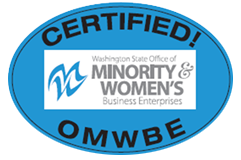Construction Accounting
The construction industry is a multifaceted one. With a diverse range of trades, business models and financial reporting, there are key accounting skills, experience, and features to look for when recruiting for your financial roles.
A professional working in construction accounting needs to have a deep understanding of job costing and revenue recognition to properly track job expenses and report revenue. They must be able to accurately track expenses and revenue as they relate to each individual job, as well as the company as a whole. This requires an understanding of both traditional accounting principles and construction-specific procedures.
JOB COSTING and REVENUE RECOGNITION
Job costing and revenue recognition are at the heart of construction accounting.
In construction accounting, job costing is the process of tracking costs and revenue associated with specific jobs. This includes both direct and indirect costs, as well as any profits or losses associated with the job. Job costing is an essential tool for effective cost management in the construction industry.
Revenue recognition is the process of recording revenue as it is earned. In the construction industry, this typically means recognizing revenue as work is completed on a job, rather than when the customer pays the invoice. This can be a bit more complicated than traditional accounting, as it can be difficult to track exactly when work is completed. Construction accounting software can make this process a bit easier.
Cost reporting is vital for understanding if a job is profitable and estimates given to the customer are realistic. Financial analysis helps management understand how their operations are performing and can reveal important information, such as the health of the firm and its ability to continue operations. These are all very important skills to look for when hiring a construction experienced accountant.
FASB and GAAP REPORTING
A construction accountant also must understand the rules around recognizing contract revenues per both FASB and GAAP requirements that include FASB rule 456 regarding two types of ways contracts can post these revenues to their books.
- The first is the completed contract method, which recognizes revenue once the contract is completed.
- The second is the percentage of completion method which recognizes revenue in phases as the project progresses.
In order to follow GAAP standards, income and expenses must be aligned. Matching the expenses to the appropriate job or income stream is an important step to providing accurate profitability reporting. This gives management the data needed to know if the business is running as anticipated and helps identify costs that are out0-of-line with estimates and determine which types of services are the most profitable. Management relies on this data for forecasting new business and pursue growth.
Each method has its pros and cons, and an experienced construction accountant should be able to deicer which method is most appropriate for firm and management needs. Where percentage of completion methods are preferable for long-term stable contracts and completed contract methods are best suited for contracts that have unpredictable variable costs.
CASH FLOW MANAGEMENT
Directly tied to job costing and revenue recognition, a critical skill for a construction accountant is cash flow management. This involves ensuring that the company has enough cash on hand to cover its expenses, as well as any additional costs that may arise during a project. It can be difficult to track cash flow in the construction industry, as payments can often be received weeks or even months after work is completed. Construction accounting software can make this process a bit easier.
Effective cash flow management is essential for keeping projects running smoothly and preventing cost overruns. It also allows the company to take on new jobs without risking its financial stability. Cash flow management is one of the most important skills for a construction accountant and should be a top priority.
CONCLUSION
A successful construction accountant must understand job costing and revenue recognition, as well as FASB and GAAP reporting. These principles are essential for tracking costs and revenue associated with specific jobs, as well as the company. When you’re looking to hire a construction experienced accountant, make sure they have experience in these areas!




